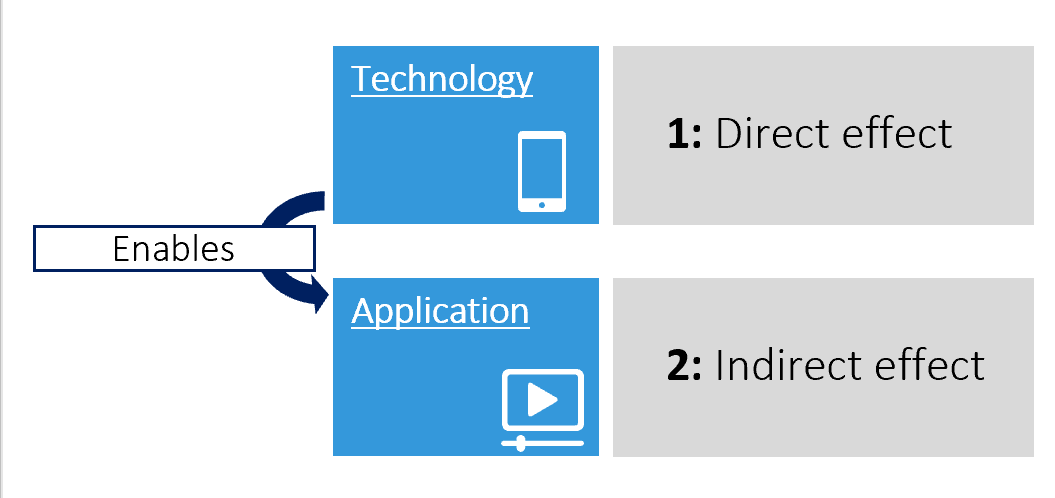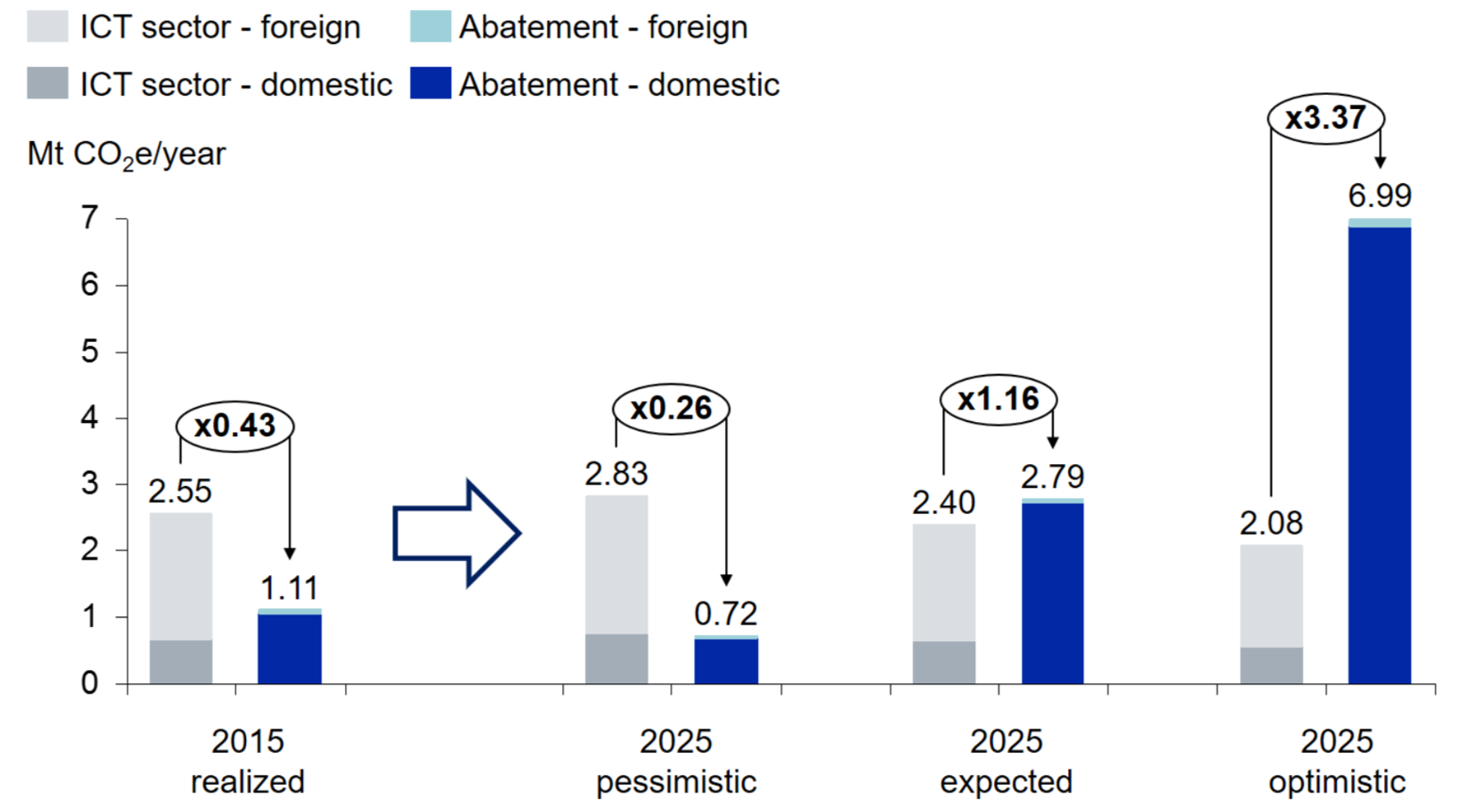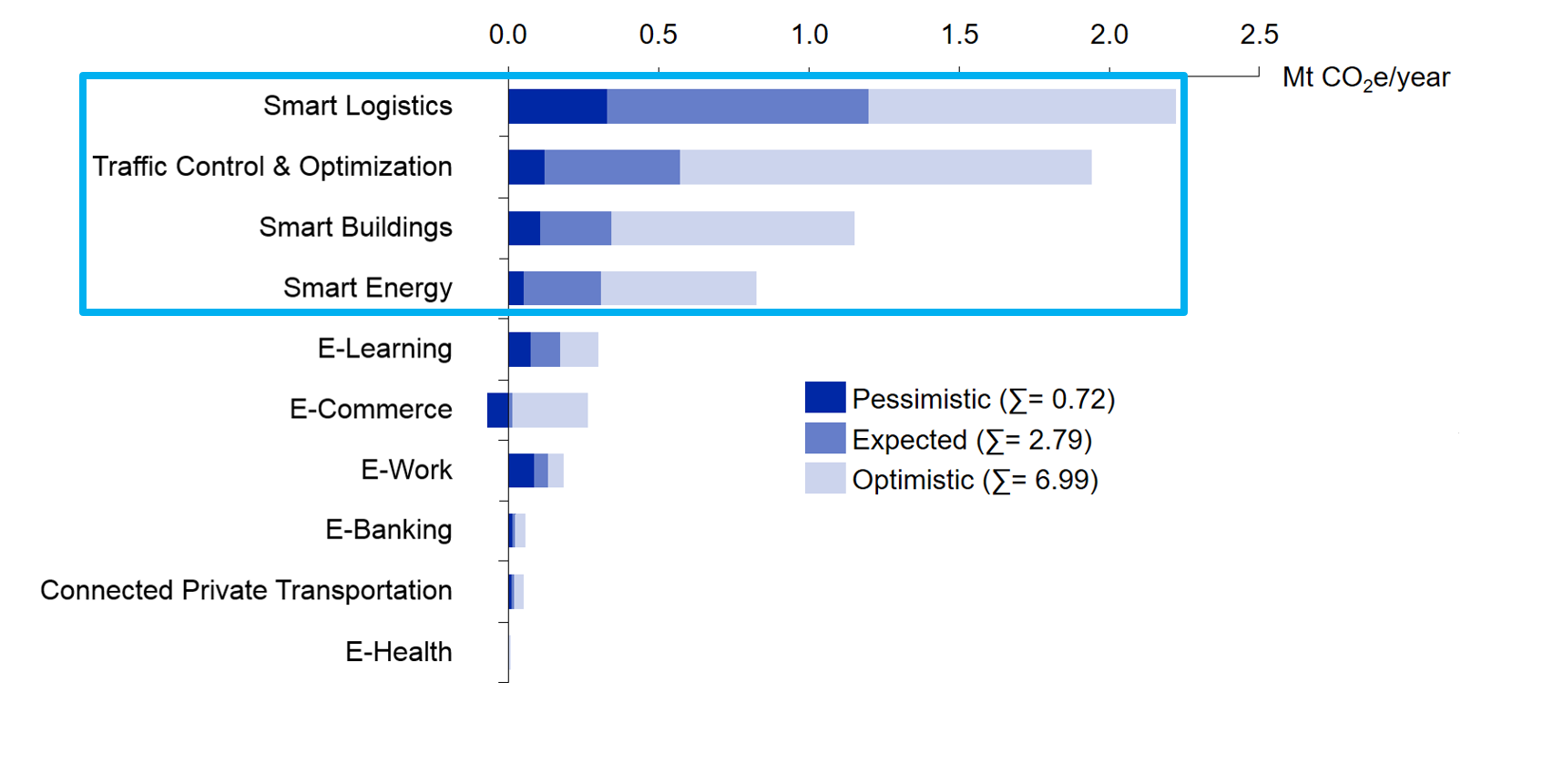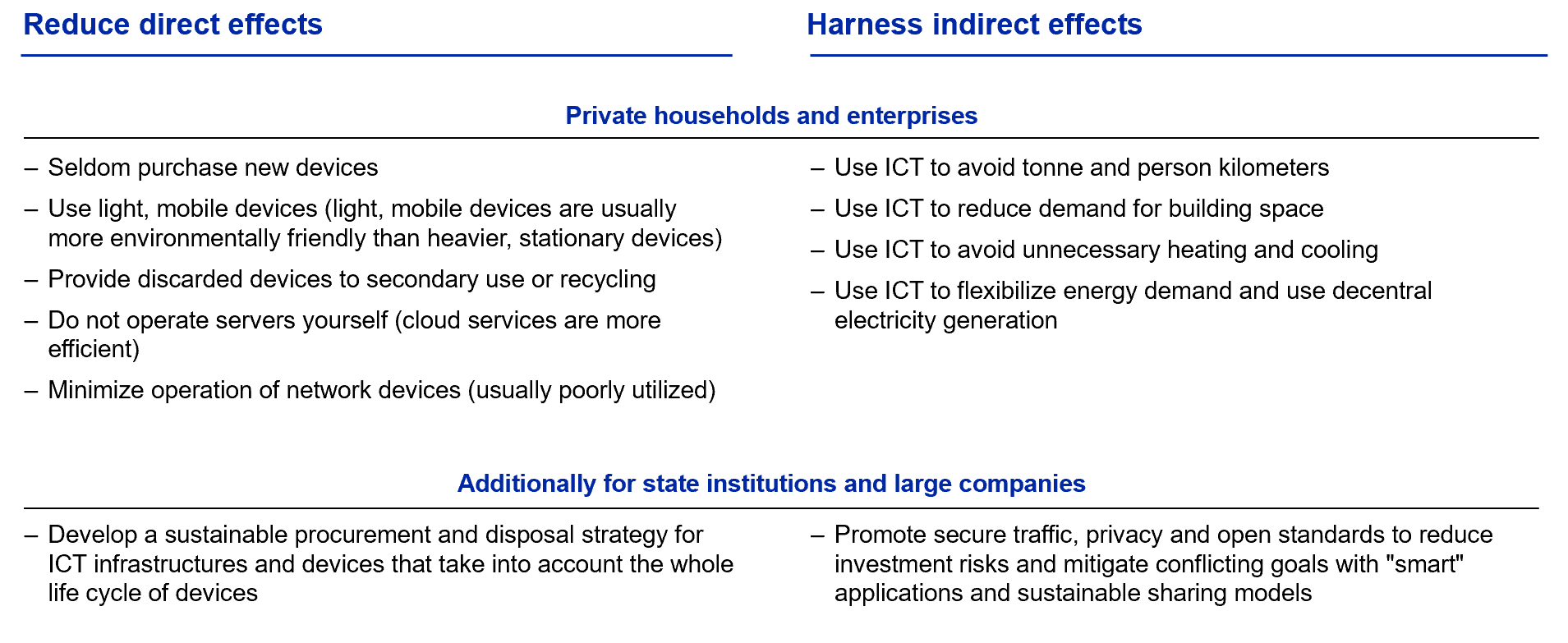Digitalization and Climate Protection
Researchers Involved
research areas
timeframe
2017 - 2018
contact
jan.bieser@bhf.chProject Goals
Conducted together with Swisscom – Switzerland’s largest ICT provider – and WWF Switzerland, the project’s goal was to investigate opportunities and risks of digitalization for climate protection in Switzerland in various sectors, including mobility. The report specifically emphasizes what potentials exists and what risks need to be mitigated in order to exploit the potential.
Environmental Effects of ICT
- Direct Effect: Production, use and disposal of ICT requires resources and creates emissions to the environment
- Indirect Effect: Environmental effects of ICT application, examples:
- e-book reader replaces physical book
- less heating required in a smart home
- printer stimulates use of paper

Scenario Switzerland 2025: ICT can avoid 3 times more greenhouse gas emissions than the ICT sector causes itself
In Switzerland, in 2025, ICT solutions have the potential to avoid up to 3 times more greenhouse gas emissions than the ICT sector causes itself. Targeted actions are required.

Largest potentials for ICT-enabled GHG emission reduction lie in applications to transport, buildings and energy (Switzerland, 2025)
Highest potentials of ICT to avoid GHG emissions:
- Less tonne and person kilometers
- More efficient use, heating and cooling of buildings
- Flexibilization of electricity supply and demand to increase use of renewable energies

Vision
ICT applications in three mobility areas could help decrease GHG emissions:
- Car and ride sharing reduces total distance of private motorized transport and decreases private vehicle production.
- Traffic control & optimization allows to identify the most fuel-efficient routes (GPS & live traffic information services). It can reduce distance driven, fuel consumption and substitute public for private transport.
- Smart logistics reduces total distance of freight transportation. ICT applications could enable asset sharing between companies, route optimization and eco driving in various transport modes (air, train, road, water).
All potentials have to be systematically exploited and rebound effects (e.g. increase in transport demand due to decreasing cost for transport) need to minimized.




